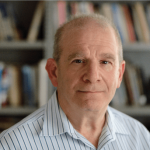May 18, 2021
CONTACT: Kait Howard
Cell: 443-301-7993
kehoward@jhu.edu jhunews@jhu.edu
As the death toll mounts in Gaza and the Israeli government resists calls for a ceasefire, Johns Hopkins University experts can offer perspective on why the fighting continues, and whether the United States can play a role in stopping it.

Adria Lawrence
Adria Lawrence is an associate professor of international studies and political science specializing in Middle Eastern and North African politics.
Lawrence says: “It is difficult to see how this crisis can be resolved. Since the breakdown of peace talks under Clinton, the Palestinians’ bargaining power has diminished. This political inequality is now leading Arab citizens of Israel to begin opposing Israeli policy, which is to chip away at Palestinian territory.”
While many are calling for the U.S. to assert pressure to stop the violence, Lawrence doesn’t think the American government has a role to play. “I do not see what the U.S. can do, given the underlying long-standing inequalities that have gone unaddressed,” she says.
Lawrence’s work focuses on colonialism, nationalism, conflict, and collective action.

Steven R. David
Steven R. David is a professor of political science. He believes the U.S. is the only country that can potentially help end the violence. “If the U.S. makes it clear to Israel that it need stop the air strikes (and if Hamas agrees) the conflict is likely to end. There are signs that the Biden administration is prepared to do more to reign in Israel than was the case of previous U.S. presidents,” he says
He can also comment on what some have described as Israel’s disproportionate response to attacks by Hamas militants. He says: “Comparing casualties is a poor way to assign blame. The key questions to ask of Israel is whether it is using force proportional to the threat it faces (you don’t destroy a village to kill a single sniper) and whether it is doing enough to minimize civilian casualties. You’ll get different responses to these questions, but they are the right ones to ask.”
David’s work focuses on security studies, the politics of the developing world, American foreign policy, and turmoil in the Middle East.
To reach an expert, please contact Kait Howard, kehoward@jhu.edu.
###
Johns Hopkins University news releases are available online, as is information for reporters. To arrange a video or audio interview with a Johns Hopkins expert, contact a media representative listed above or visit our studio web page. Find more Johns Hopkins stories on the Hub.